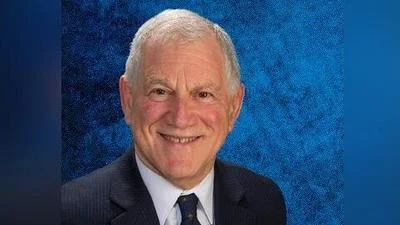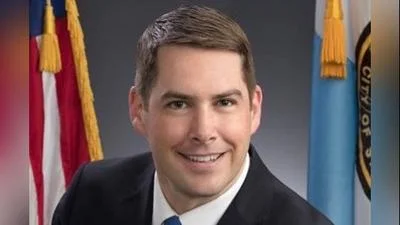Chancellor Kent Syverud | Syracuse University
Chancellor Kent Syverud | Syracuse University
The Maxwell School of Citizenship and Public Affairs has introduced a new collection of portraits from Robert Shetterly’s “Americans Who Tell the Truth” series. This initiative is part of the school's effort to reflect its diverse community within its physical space.
For nearly 100 years, a statue of President George Washington stood alone at the north entrance of the school. Two years ago, it was joined by portraits from Shetterly's series. The latest installment, titled “A Conversation with George Washington,” aims to provoke thought and discussion on citizenship.
Among the new portraits is Emma Tenayuca, who advocated for Mexican American workers in Texas at age 16. The exhibition also features Muhammad Ali, known for his civil rights activism and refusal to serve in the Vietnam War. Historian Gladys McCormick, associate dean for diversity, equity, and inclusion at Maxwell School, explained: “We wanted to get viewers to want to learn more about how and why someone like Muhammad Ali has something to say about citizenship.”
According to Shetterly’s website, “The portraits are the opposite of hot takes or quick opinions. They invite you to ponder a person, their words, the issues that inspire their life’s journey, work, activism and imagination.”
The update includes activists in disability rights, environmental sustainability, rural issues, and voting rights. Stephanie Williams noted: “We wanted to include folks who represented issues we felt were important to members of our community.” McCormick added that two portraits focus on accountability—Paul Chappell from the military for veterans and Ida Tarbell as an investigative journalist.
McCormick and Williams plan events related to this installation. Professor Tina Nabatchi led a workshop on Civic Skills for Civic Life on Oct. 8. More workshops are planned for spring.
Other figures featured include Ady Barkan advocating for Medicare for all; Wendell Berry raising awareness about factory farming; Shirley Chisholm fighting for racial equality; Robin Wall Kimmerer blending science with Indigenous wisdom; Alice Paul campaigning for women's suffrage; Elizabeth Cady Stanton championing women’s rights; Ida Tarbell exposing business monopolies; and Emma Tenayuca advocating workers' rights.





 Alerts Sign-up
Alerts Sign-up